
Kingston: The Heartbeat of Jamaica
Kingston, the capital city of Jamaica, is a vibrant blend of culture, history, and natural beauty. Located on the southeastern coast of the island, Kingston is the largest city in Jamaica and serves as its cultural and economic hub. The city pulses with energy, offering visitors a unique mix of reggae music, delicious cuisine, and stunning landscapes. Start your journey with a visit to the Bob Marley Museum, where you can learn about the life and legacy of the reggae legend. The museum is housed in Marley's former home and features a range of memorabilia, from his personal belongings to his music awards. Just a short drive away is the Devon House, a beautiful 19th-century mansion that now serves as a cultural hotspot. Enjoy some of Kingston’s best ice cream here while soaking in the historic ambiance. Kingston is also known for its vibrant markets and street life. The Coronation Market is the largest in Jamaica and offers a colorful array of fresh produce, spices, and local crafts. For a more relaxed experience, head to Emancipation Park, a green oasis in the heart of the city, perfect for a leisurely stroll or a picnic. Nature lovers will enjoy the nearby Blue Mountains, home to some of the world's best coffee and breathtaking views. Hiking trails are abundant, offering a chance to explore the lush landscape. Don't miss out on a visit to the Hope Botanical Gardens, which showcase the island's diverse flora in a serene setting. Kingston's nightlife is equally exciting, with numerous bars, clubs, and live music venues. The city is a cradle of reggae and dancehall music, and you can experience live performances almost any night of the week. Whether you’re a history buff, nature enthusiast, or music lover, Kingston offers a rich tapestry of experiences that will captivate your senses.
Local tips in Kingston
- Visit the Bob Marley Museum early in the day to avoid crowds.
- Try the famous Devon House I-Scream – it's a must!
- Wear comfortable shoes for exploring the markets and streets.
- Take a guided tour to the Blue Mountains for the best experience.
- Keep some Jamaican dollars for street vendors and local markets.
- Stay alert and be mindful of your belongings in crowded areas.
Neighbourhoods in Kingston
Kingston: The Heartbeat of Jamaica
Kingston, the capital city of Jamaica, is a vibrant blend of culture, history, and natural beauty. Located on the southeastern coast of the island, Kingston is the largest city in Jamaica and serves as its cultural and economic hub. The city pulses with energy, offering visitors a unique mix of reggae music, delicious cuisine, and stunning landscapes. Start your journey with a visit to the Bob Marley Museum, where you can learn about the life and legacy of the reggae legend. The museum is housed in Marley's former home and features a range of memorabilia, from his personal belongings to his music awards. Just a short drive away is the Devon House, a beautiful 19th-century mansion that now serves as a cultural hotspot. Enjoy some of Kingston’s best ice cream here while soaking in the historic ambiance. Kingston is also known for its vibrant markets and street life. The Coronation Market is the largest in Jamaica and offers a colorful array of fresh produce, spices, and local crafts. For a more relaxed experience, head to Emancipation Park, a green oasis in the heart of the city, perfect for a leisurely stroll or a picnic. Nature lovers will enjoy the nearby Blue Mountains, home to some of the world's best coffee and breathtaking views. Hiking trails are abundant, offering a chance to explore the lush landscape. Don't miss out on a visit to the Hope Botanical Gardens, which showcase the island's diverse flora in a serene setting. Kingston's nightlife is equally exciting, with numerous bars, clubs, and live music venues. The city is a cradle of reggae and dancehall music, and you can experience live performances almost any night of the week. Whether you’re a history buff, nature enthusiast, or music lover, Kingston offers a rich tapestry of experiences that will captivate your senses.
When is the best time to go to Kingston?
Iconic landmarks you can’t miss
Emancipation Park
Explore Emancipation Park in Kingston, Jamaica – A historical landmark and serene garden that celebrates freedom and cultural pride.
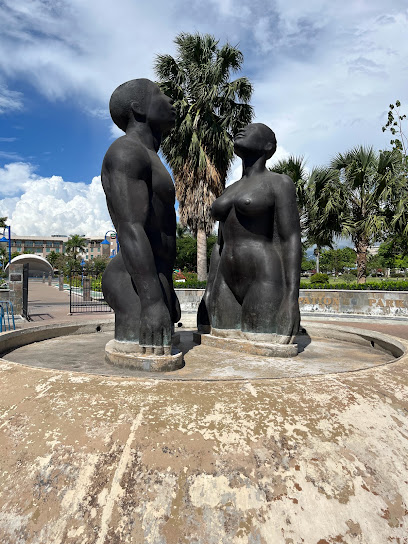
Bob Marley Museum
Explore the vibrant legacy of Bob Marley at the Bob Marley Museum in Kingston, a must-visit for music lovers and culture enthusiasts alike.
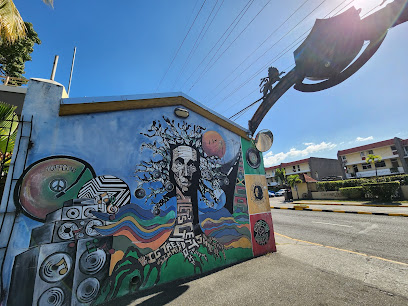
Coronation Market Jamaica
Explore the lively Coronation Market in Kingston, Jamaica, where fresh produce, local crafts, and authentic cultural experiences await every traveler.
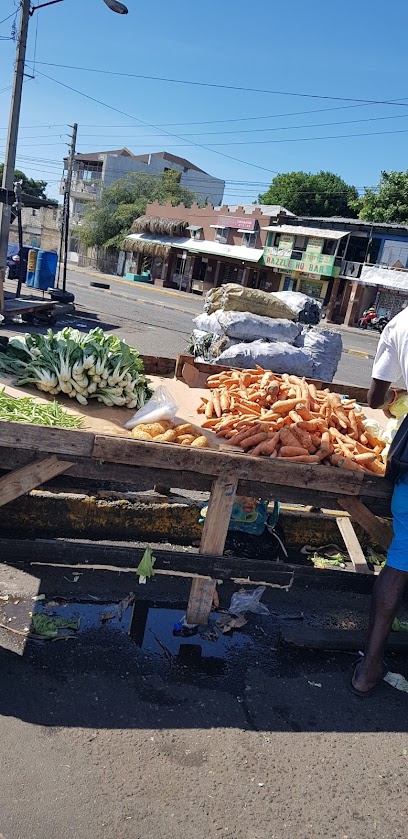
Hope Botanical Gardens
Explore the breathtaking beauty of Hope Botanical Gardens in Kingston, Jamaica—a lush paradise for nature lovers and a peaceful escape in the city.
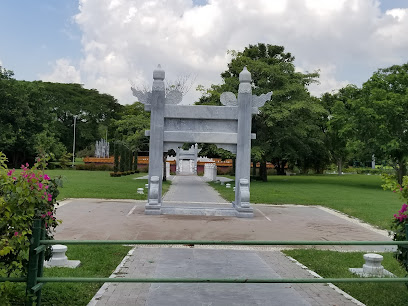
Kingston Waterfront
Explore the vibrant Kingston Waterfront, a historical landmark blending scenic views, local cuisine, and rich Jamaican culture.
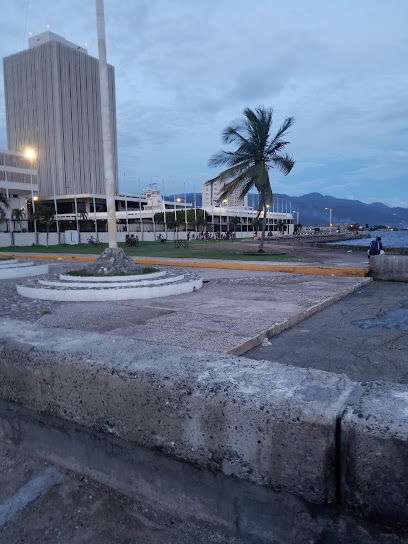
National Heroes Park
Discover the tranquility and history of National Heroes Park in Kingston, Jamaica, where nature and national pride meet.
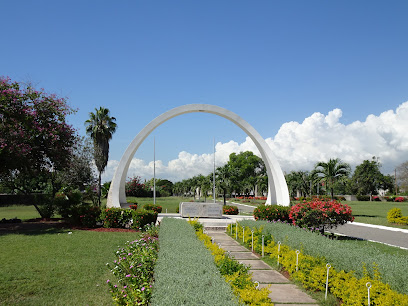
Half-Way-Tree Clock
Discover the historical significance and vibrant energy of Kingston at the iconic Half-Way-Tree Clock, a must-visit landmark in Jamaica.
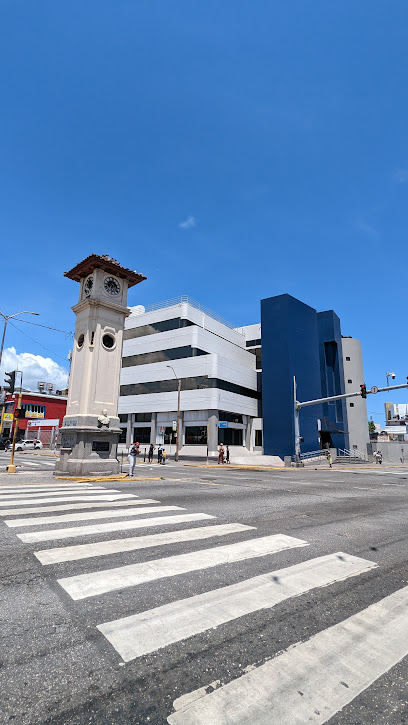
Fort Charles
Explore the rich maritime history of Fort Charles in Port Royal, a stunning fortress that showcases Jamaica's colonial past and offers breathtaking coastal views.
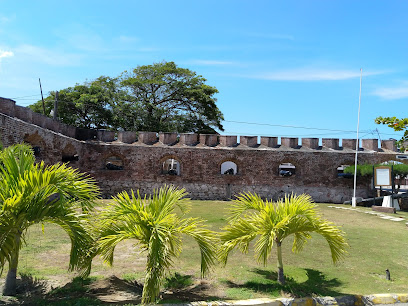
National Gallery of Jamaica
Discover Jamaica's artistic heritage at the National Gallery of Jamaica, featuring diverse exhibitions and a rich collection of local art.
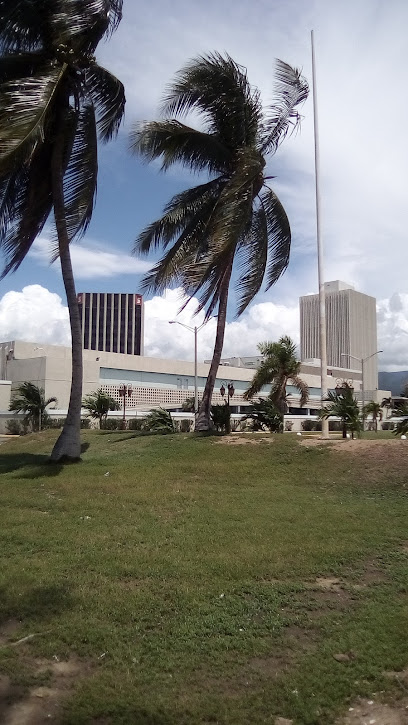
Trench Town Culture Yard Museum
Uncover the roots of reggae at Trench Town Culture Yard Museum, the birthplace of Bob Marley's legacy and a vibrant cultural hub in Kingston, Jamaica.
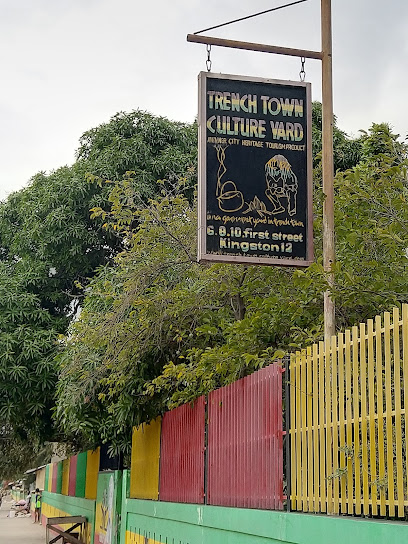
Peter Tosh Museum
Discover the vibrant legacy of Peter Tosh at the Peter Tosh Museum in Kingston, where music history and social activism intertwine.
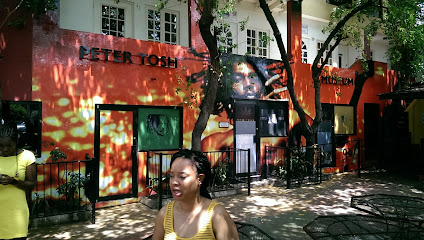
Look Out
Experience breathtaking views and serene landscapes at Look Out, Kingston's premier tourist attraction amidst lush hills and vibrant nature.
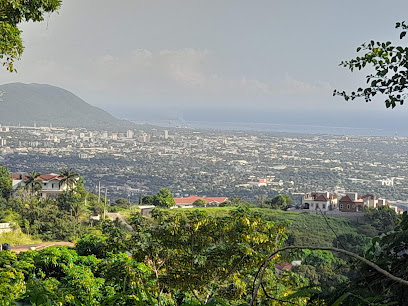
Liberty Hall: The Legacy of Marcus Garvey
Discover the inspiring legacy of Marcus Garvey at Liberty Hall, a heritage museum celebrating Jamaica's cultural history and the fight for empowerment.
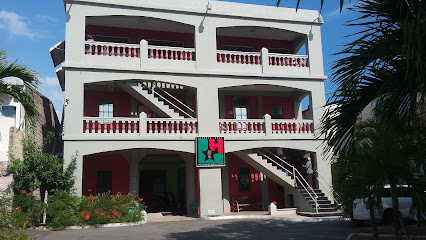
The Institute of Jamaica
Experience Jamaica's rich cultural heritage at The Institute of Jamaica, a premier museum in Kingston showcasing art, history, and science.
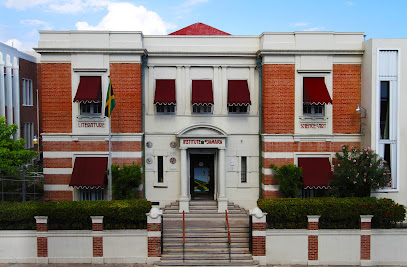
National Museum Jamaica
Explore Jamaica's vibrant history and culture at the National Museum Jamaica, a must-visit destination for every traveler.
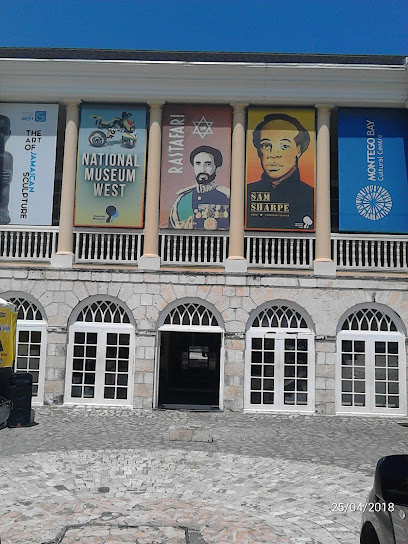
Unmissable attractions to see
Saint William Grant Park
Experience the beauty and culture of Kingston at Saint William Grant Park, a lush urban retreat perfect for relaxation and local exploration.
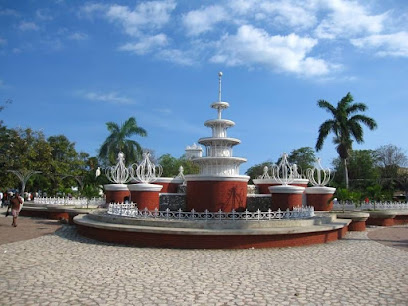
Chinese Garden, Hope Gardens
Discover the tranquil beauty of the Chinese Garden at Hope Gardens, where nature and culture create a serene retreat in Kingston.
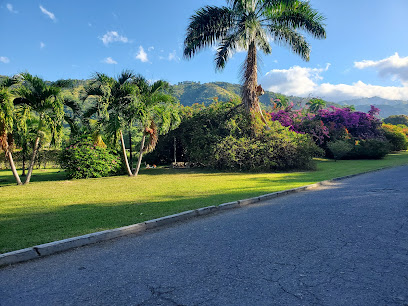
Nelson Mandela Park
Explore the natural beauty and vibrant culture of Kingston at Nelson Mandela Park, a perfect blend of relaxation, recreation, and community spirit.
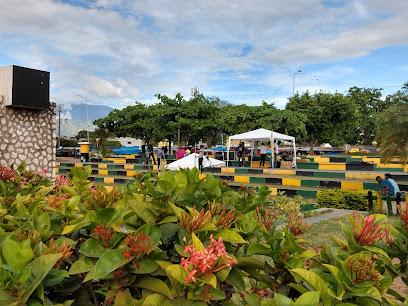
Skyline Lookout
Discover breathtaking views and serene beauty at Skyline Lookout, Kingston's premier panoramic destination amidst lush hills and vibrant city life.
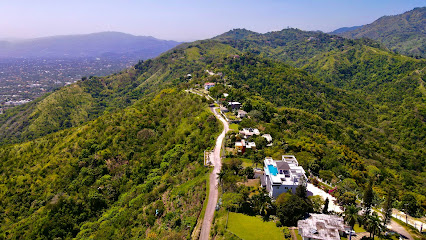
Holy Trinity Cathedral
Explore the Holy Trinity Cathedral in Kingston: A stunning blend of Gothic architecture and Caribbean heritage, perfect for culture enthusiasts and spiritual seekers.
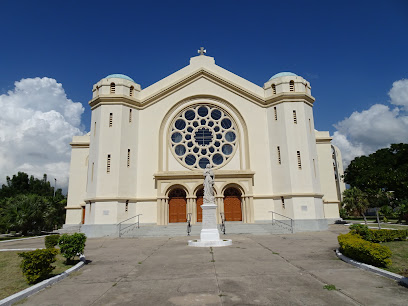
Look Out
Discover breathtaking views of Kingston, Jamaica at Look Out, the ultimate destination for stunning panoramic photography and unforgettable experiences.
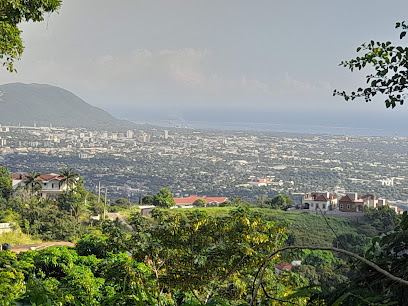
Liberty Hall: The Legacy of Marcus Garvey
Discover the enduring legacy of Marcus Garvey at Liberty Hall, a cultural gem in Downtown Kingston, celebrating Jamaica's rich heritage and history.
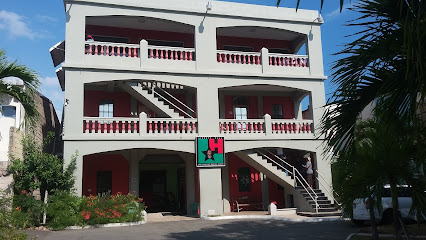
The Gardens
Discover tranquility at The Gardens in Kingston, a lush oasis filled with vibrant plants, serene walking paths, and a celebration of Jamaican culture.

Norfolk Island RSL Memorial Club
Experience the vibrant local culture at Norfolk Island RSL Memorial Club, where community spirit meets delicious dining and lively entertainment.
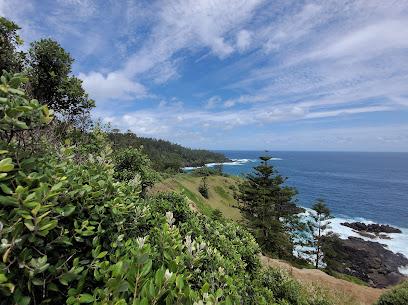
Shaare Shalom Synagogue
Explore the rich heritage of Jamaica at Shaare Shalom Synagogue, a historic landmark showcasing the island's unique Jewish culture and traditions.
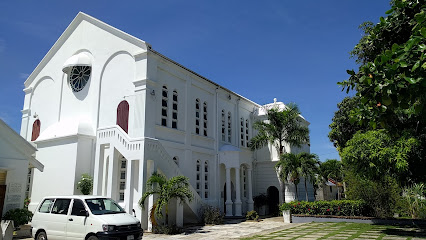
Cinchona Botanical Gardens JA
Discover the beauty of Jamaica at Cinchona Botanical Gardens, a serene escape showcasing tropical flora amidst breathtaking vistas.
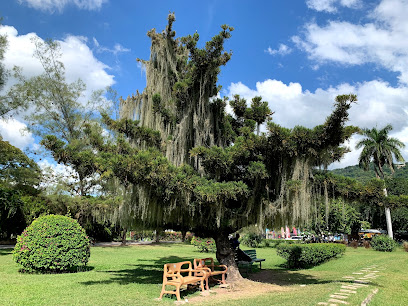
Funland Jamaica
Experience the joy of adventure and family fun at Funland Jamaica, a top amusement park in Kingston's beautiful Hope Gardens.
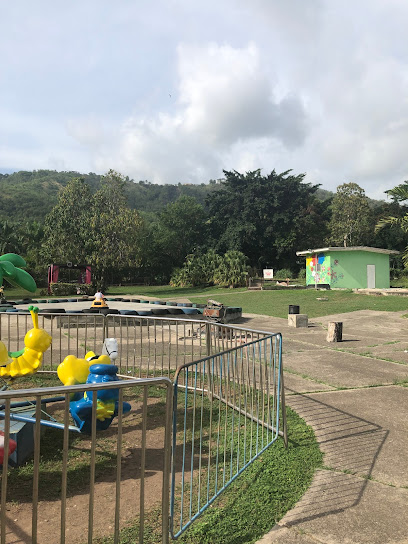
Norfolk Island Liquor Bond Store
Discover a diverse selection of local and international spirits at the Norfolk Island Liquor Bond Store, a must-visit for every tourist.
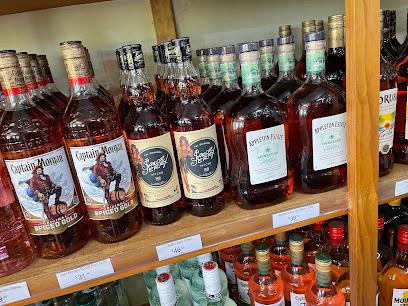
Natural History Museum of Jamaica
Uncover Jamaica's rich biodiversity and cultural history at the Natural History Museum of Jamaica in Kingston.
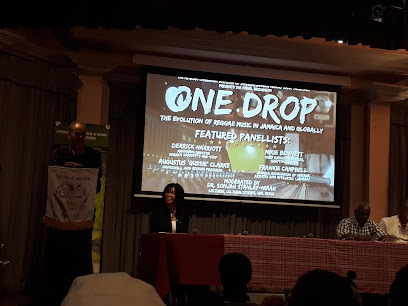
Uptown Mondays
Experience the vibrant nightlife at Uptown Mondays in Kingston - where music, dance, and delicious food create unforgettable memories.
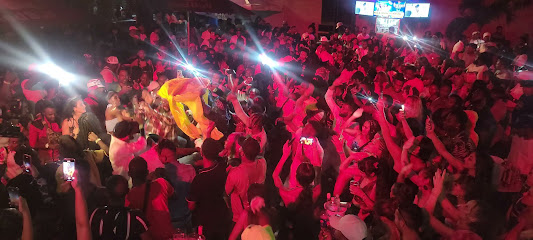
Essential places to dine
Gloria's
Discover authentic Caribbean seafood at Gloria's in Port Royal - where every dish tells a story of flavor and tradition.
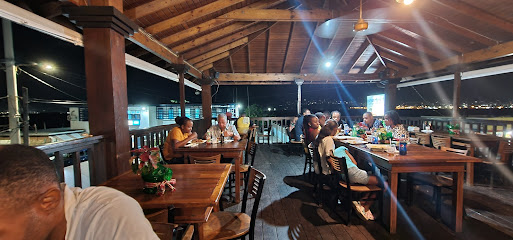
Macau Gaming Lounge & Bar
Discover culinary delights and exhilarating gaming at Macau Gaming Lounge & Bar in Kingston - a must-visit destination for foodies and thrill-seekers.
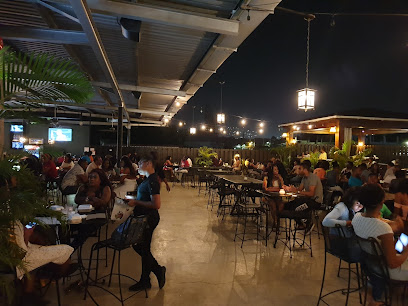
Usain Bolt's Tracks & Records
Discover the vibrant flavors of Jamaica at Usain Bolt's Tracks & Records - where culinary excellence meets cultural celebration.
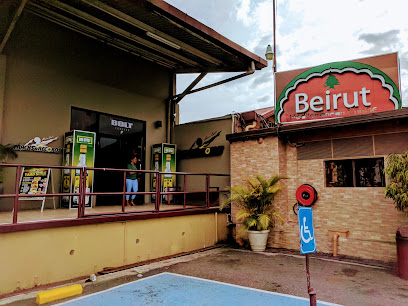
Terra Nova All Suite Hotel Jamaica
Discover unparalleled luxury at Terra Nova All Suite Hotel Jamaica – your gateway to Kingston's vibrant culture and exquisite dining experiences.

South Avenue Grill
Experience the vibrant flavors of Jamaica at South Avenue Grill in Kingston – where every meal is a celebration.
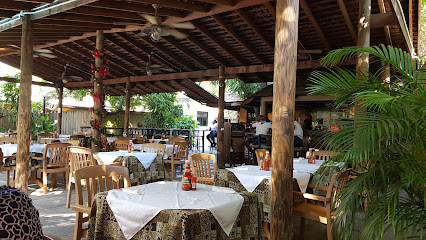
Chilitos Jamexican Food
Experience an unforgettable fusion of Mexican and Jamaican flavors at Chilitos Jamexican Food in Kingston.
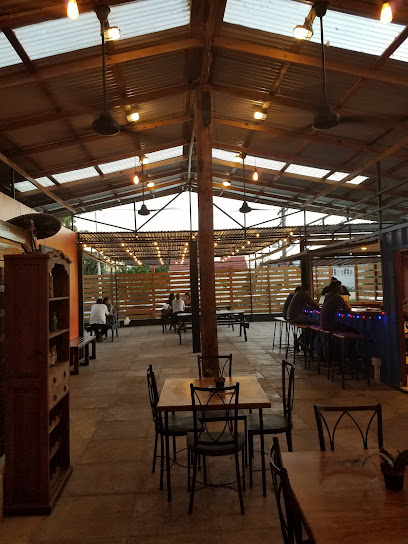
Gloria's Seafood City
Experience authentic Jamaican seafood at Gloria's Seafood City in Kingston - where every dish tells a story of flavor and tradition.
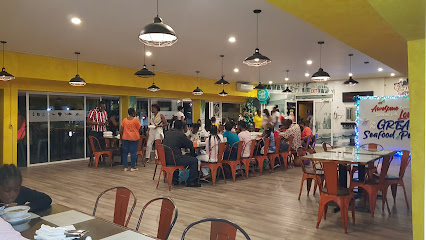
Ribbiz Ocean Lounge
Experience vibrant Jamaican cuisine at Ribbiz Ocean Lounge, where stunning ocean views meet lively entertainment in Kingston.
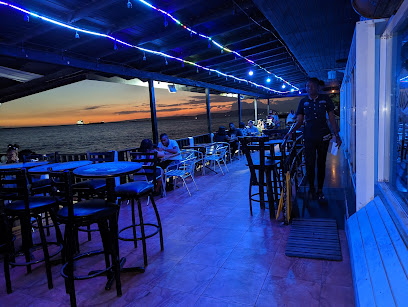
CRU Bar and Kitchen
Experience the vibrant flavors of Jamaica at CRU Bar and Kitchen in New Kingston - where every bite tells a story.
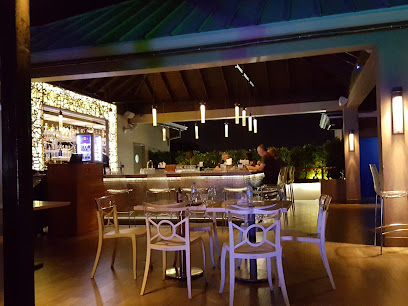
M10 Bar & Grill
Experience vibrant flavors at M10 Bar & Grill in Kingston - where Jamaican hospitality meets culinary excellence.
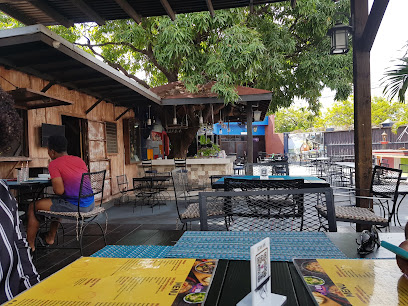
Sonia’s Homestyle Cooking & Natural Juices
Experience authentic Jamaican cuisine at Sonia’s Homestyle Cooking & Natural Juices – a culinary gem in Kingston offering delicious meals and refreshing natural juices.
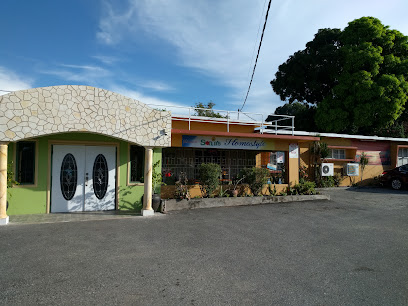
Epican Tapas Lounge
Experience the fusion of Caribbean flavors at Epican Tapas Lounge in Kingston – where every bite tells a story.
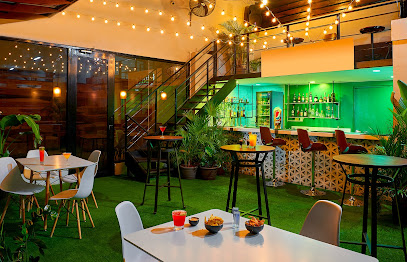
Broken Plate Restaurant
Experience authentic Jamaican cuisine at Broken Plate Restaurant in Kingston – where every dish tells a story.
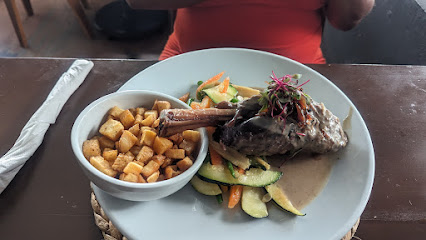
Uncorked!
Discover culinary excellence at Uncorked!, Kingston's premier fine dining restaurant featuring gourmet cheeses and an exquisite wine selection.
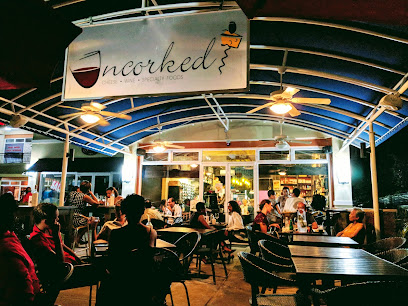
Tea Tree Crêperie
Experience Jamaica's vibrant flavors at Tea Tree Crêperie – where sweet meets savory in deliciously crafted crepes.
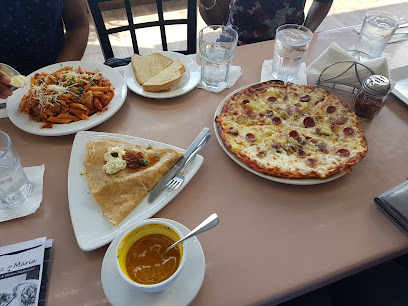
Markets, malls and hidden boutiques
Sovereign Centre
Explore Sovereign Centre in Kingston, Jamaica—your ultimate destination for shopping, dining, and entertainment in a vibrant atmosphere.
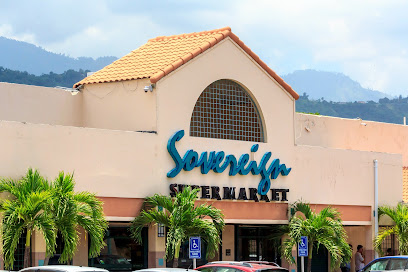
CARBY'S SOUVENIR DISCOUNT CENTRE & CRAFT VILLAGE
Discover authentic Jamaican crafts and souvenirs at Carby's Souvenir Discount Centre & Craft Village in Kingston, a vibrant hub of local artistry.
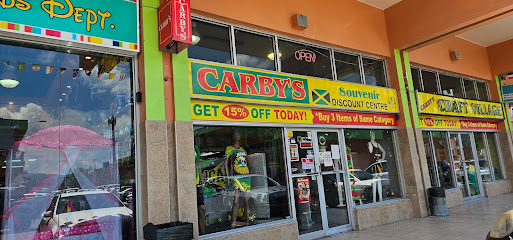
Boutique Intuition
Explore unique Jamaican fashion at Boutique Intuition in Kingston, where vibrant styles meet local craftsmanship in a chic shopping atmosphere.
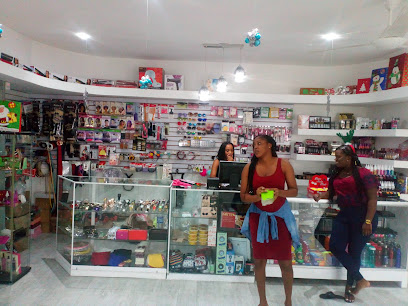
Collectibles
Explore Kingston's Collectibles for unique fashion pieces and accessories that showcase the vibrant Jamaican culture.
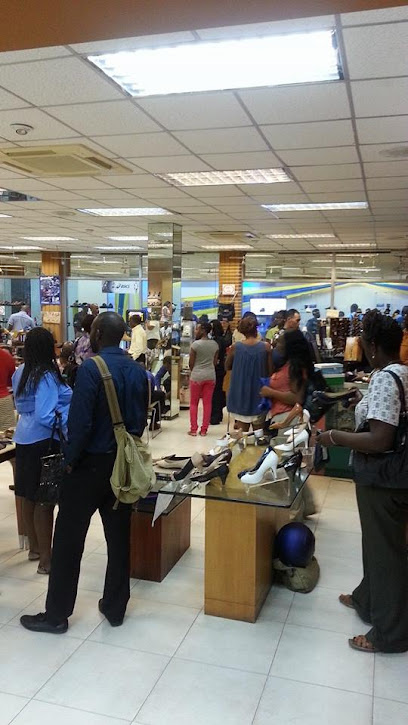
Emanuelle Boutique
Discover the essence of Jamaican fashion at Emanuelle Boutique, a stylish women's clothing store in Kingston's Village Plaza.
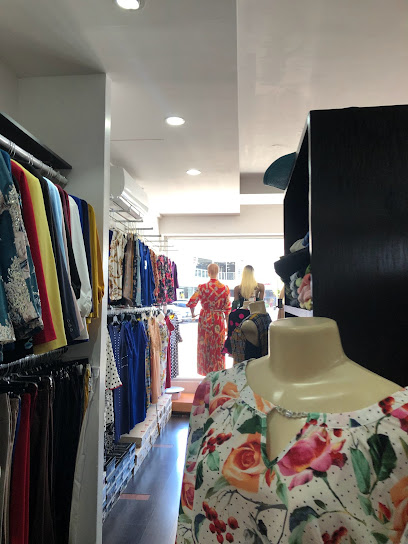
Craft Cottage
Explore Craft Cottage in Kingston for authentic Jamaican gifts and souvenirs that capture the island's vibrant culture and craftsmanship.
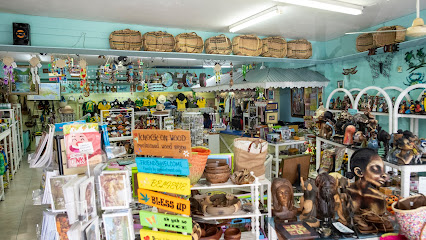
Enigma Male Boutique
Explore Enigma Male Boutique in Kingston for stylish men's clothing and a unique shopping experience that reflects the vibrant Jamaican culture.
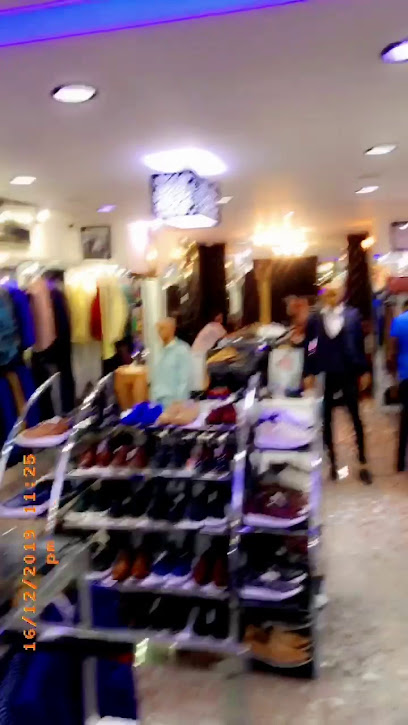
Angela's
Explore vibrant fashion at Angela's Clothing Store in Kingston, where unique styles reflect the rich culture of Jamaica.
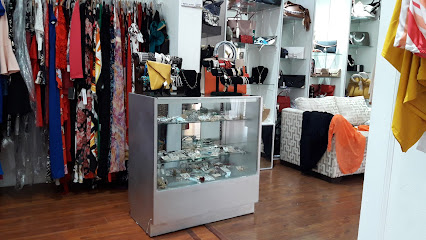
XhibitK
Discover the vibrant style of Jamaica at XhibitK, a must-visit clothing store in Kingston offering unique local and international fashion.
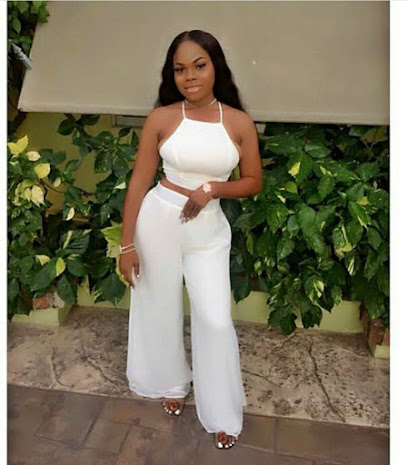
Kurvez By Tina Boutique
Explore stylish plus-size clothing at Kurvez By Tina Boutique in Kingston, where fashion meets body positivity and local flair.
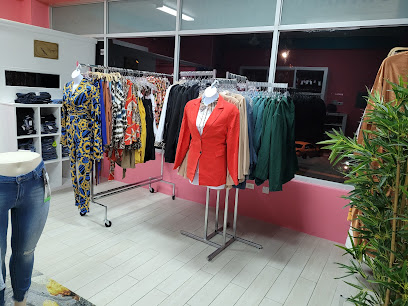
Sweet Stuff Boutique
Explore Sweet Stuff Boutique in Kingston for an eclectic mix of bridal wear, cosmetics, and trendy accessories, perfect for every fashionista.
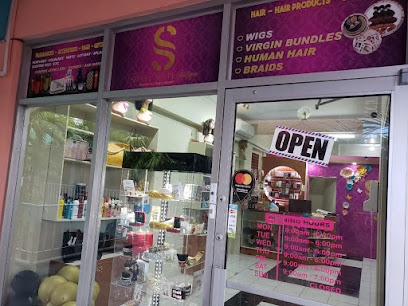
Class By Toyas Boutique22
Discover the heart of Jamaican fashion at Class By Toyas Boutique, where unique designs and local artistry come together in Kingston's vibrant shopping scene.

Hallison Closet
Explore Hallison Closet in Kingston for an exceptional variety of clothing and fragrances, complemented by outstanding customer service.
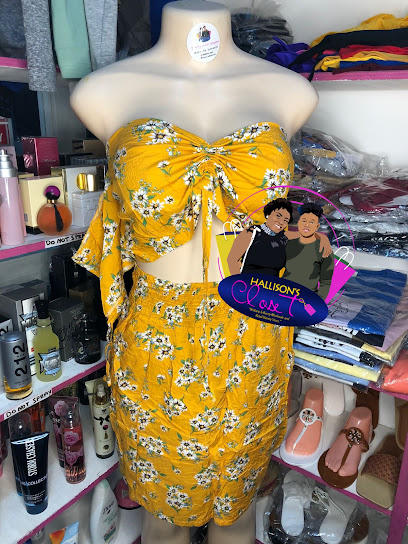
Sobelio Boutique
Experience the vibrant fashion scene at Sobelio Boutique in Kingston, where local culture and stylish design converge.

Bliss by Z Boutique & Accessories Ltd
Discover the essence of Jamaican fashion at Bliss by Z Boutique & Accessories Ltd, where style meets local craftsmanship in Kingston.

Essential bars & hidden hideouts
Macau Gaming Lounge & Bar
Discover the vibrant nightlife at Macau Gaming Lounge & Bar, where exquisite dining meets thrilling gaming in the heart of Kingston.
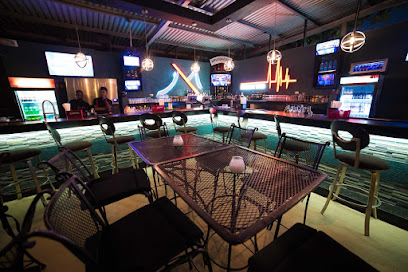
Ribbiz UltraLounge
Experience the vibrant atmosphere and savor delicious grilled dishes at Ribbiz UltraLounge, the ultimate dining destination in Kingston, Jamaica.
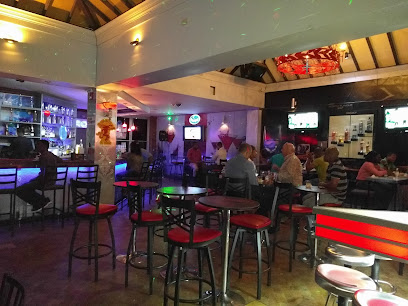
CRU Bar and Kitchen
Experience the vibrant culinary scene at CRU Bar and Kitchen, where local flavors meet global grill cuisine in the heart of Kingston.
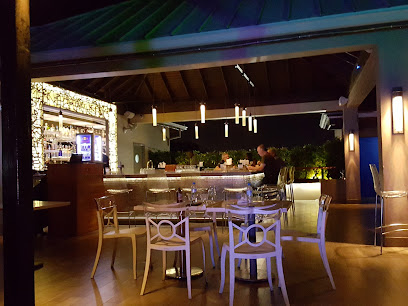
The Pub Bar and Grill
Experience the vibrant flavors and lively atmosphere of Kingston at The Pub Bar and Grill, a perfect spot for tourists seeking local cuisine and entertainment.
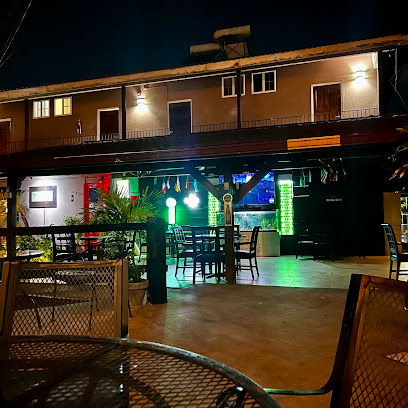
Uncorked!
Experience culinary excellence at Uncorked! in Kingston, where fine dining meets exquisite cheese and a curated wine selection.
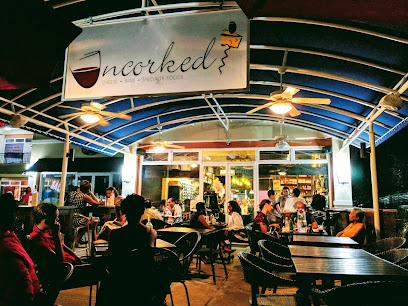
Escape 24\7 Bar & Grill
Experience the vibrant nightlife at Escape 24/7 Bar & Grill, where delicious cuisine and refreshing drinks meet a lively atmosphere in Kingston.
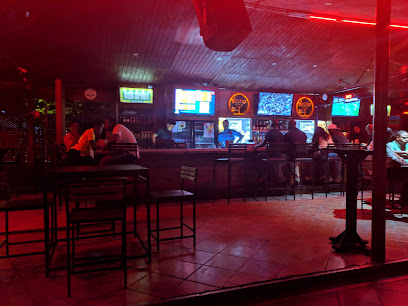
Regency Bar & Lounge
Experience Kingston's vibrant nightlife at Regency Bar & Lounge, the ultimate sports bar for entertainment, local culture, and delicious cuisine.
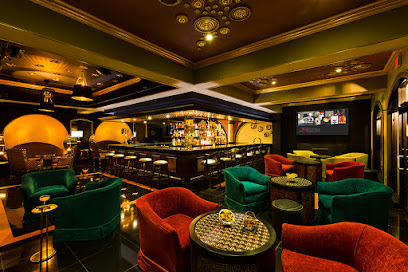
Barbican Beach Bar
Discover Barbican Beach Bar in Kingston, where delicious grill flavors meet an exciting sports atmosphere for an unforgettable dining experience.
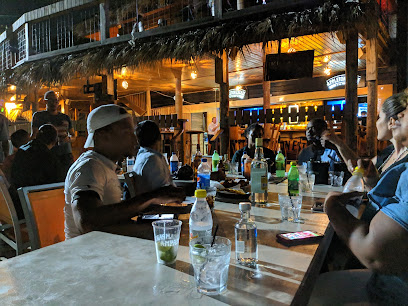
TRIO
Experience the vibrant culinary scene of Kingston at TRIO, where delicious food and lively atmosphere come together for an unforgettable dining experience.
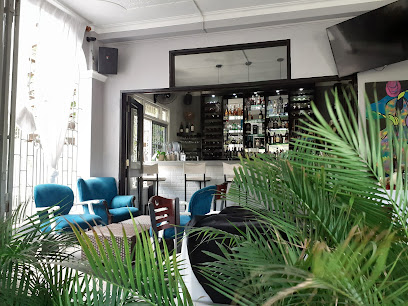
Exit 21 Ultra Lounge
Experience the vibrant nightlife at Exit 21 Ultra Lounge, Kingston's ultimate sports bar perfect for casual gatherings and exciting live events.
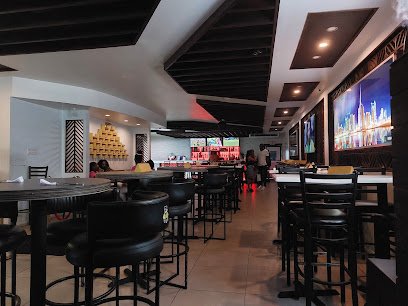
Di Bar at Blue Mahoe Estate
Discover the vibrant nightlife and local flavors at Di Bar, a premier destination for drinks and fun in Kingston, Jamaica.
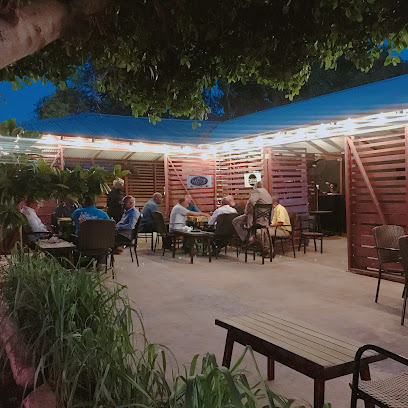
Mahogony Tree Bar
Discover the vibrant nightlife at Mahogony Tree Bar in Kingston, where great drinks and live music create unforgettable experiences.
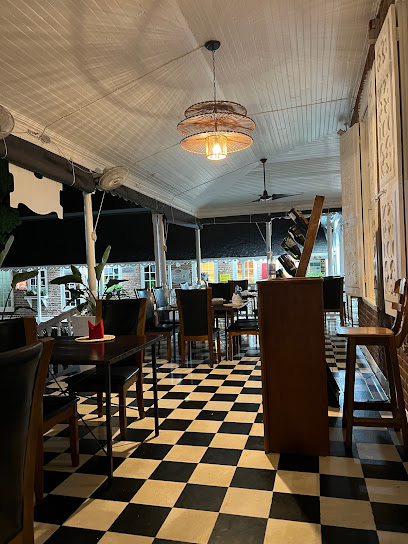
Reggae Fountain Restaurant & Sports Bar
Discover the lively Reggae Fountain Restaurant & Sports Bar in Kingston, where delicious Jamaican cuisine meets vibrant sports entertainment.
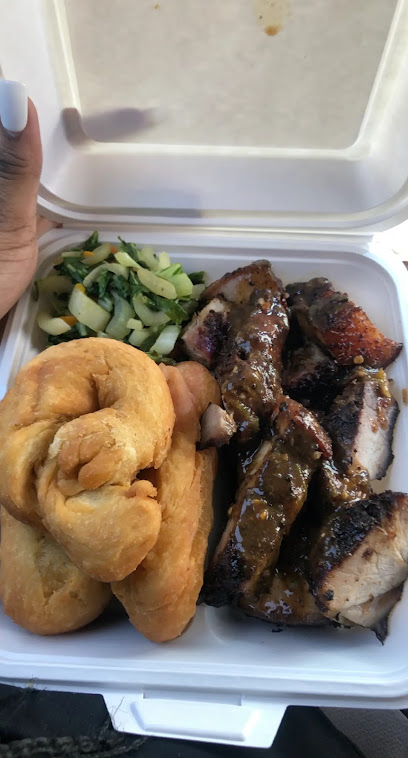
Tuckie's Bar
Experience the lively spirit of Kingston at Tuckie's Bar, where great drinks and vibrant culture meet in a tropical oasis.
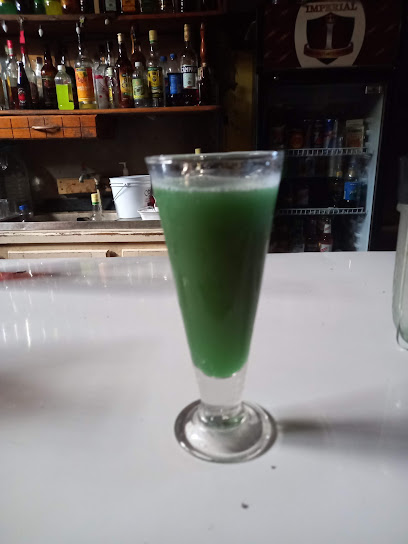
Local Phrases
-
- HelloWah gwaan
[Wa gwaan] - GoodbyeMi a guh now
[Mi a go now] - YesYa man
[Ya man] - NoNuh uh
[Nuh uh] - Please/You're welcomeNo problem
[No problem] - Thank youRespect
[Re-spect] - Excuse me/SorrySarry, mi bad
[Sarry, mi bad] - How are you?Wah gwaan?
[Wa gwaan?] - Fine. And you?Mi deh yah. An yuh?
[Mi deh yah. An yuh?] - Do you speak English?Yuh chat English?
[Yuh chat English?] - I don't understandMi nuh undastan
[Mi nuh undastan]
- HelloWah gwaan
-
- I'd like to see the menu, pleaseMi woulda like si di menu, please
[Mi woulda like si di menu, please] - I don't eat meatMi nuh nyam meat
[Mi nuh nyam meat] - Cheers!Cheers!
[Cheers!] - I would like to pay, pleaseMi woulda like fi pay, please
[Mi woulda like fi pay, please]
- I'd like to see the menu, pleaseMi woulda like si di menu, please
-
- Help!Help!
[Help!] - Go away!Gweh!
[Gweh!] - Call the Police!Call di Police!
[Call di Police!] - Call a doctor!Call a doctor!
[Call a doctor!] - I'm lostMi lost
[Mi lost] - I'm illMi sick
[Mi sick]
- Help!Help!
-
- I'd like to buy...Mi woulda like fi buy...
[Mi woulda like fi buy...] - I'm just lookingMi just a look
[Mi just a look] - How much is it?A who much dat deh?
[A who much dat deh?] - That's too expensiveDat too much
[Dat too much] - Can you lower the price?Yuh can drop di price?
[Yuh can drop di price?]
- I'd like to buy...Mi woulda like fi buy...
-
- What time is it?A wah time it deh?
[A wah time it deh?] - It's one o'clockA one o'clock
[A one o'clock] - Half past (10)Half pass (10)
[Half pass (10)] - MorningMawnin
[Mawnin] - AfternoonAftanoon
[Aftanoon] - EveningEvenin
[Evenin] - YesterdayYestadeh
[Yestadeh] - TodayToday
[Today] - TomorrowTomara
[Tomara] - 1One
[One] - 2Two
[Two] - 3Tree
[Tree] - 4Fo'
[Fo'] - 5Five
[Five] - 6Six
[Six] - 7Seven
[Seven] - 8Eight
[Eight] - 9Nine
[Nine] - 10Ten
[Ten]
- What time is it?A wah time it deh?
-
- Where's a/the...?Wey di...
[Wey di...] - What's the address?Wey di address deh?
[Wey di address deh?] - Can you show me (on the map)?Yuh can show mi (pan di map)?
[Yuh can show mi (pan di map)?] - When's the next (bus)?Wen di nex (bus) a come?
[Wen di nex (bus) a come?] - A ticket (to ....)A ticket (to ....)
[A ticket (to ....)]
- Where's a/the...?Wey di...
History of Kingston
-
Kingston was founded on July 22, 1692, after an earthquake destroyed Port Royal. Survivors fled to the nearby area, leading to the establishment of the city. The town was laid out in a grid pattern, with the streets named after English royalty and nobility.
-
The catastrophic earthquake on June 7, 1692, devastated Port Royal, then a bustling pirate haven. The disaster prompted the relocation of survivors to Kingston, which rapidly expanded as a new commercial hub.
-
In 1872, Kingston officially replaced Spanish Town as the capital of Jamaica. This change marked Kingston’s emergence as the island’s political, economic, and cultural center, solidifying its status as the primary urban area in Jamaica.
-
On January 14, 1907, a powerful earthquake struck Kingston, causing widespread devastation and fires. The disaster resulted in significant loss of life and property, prompting a major rebuilding effort that modernized the city’s infrastructure.
-
Marcus Garvey, a key figure in the Pan-Africanism movement, founded the Universal Negro Improvement Association (UNIA) in Kingston in 1914. The organization aimed to uplift people of African descent worldwide, and Garvey’s speeches and writings greatly influenced civil rights movements globally.
-
Kingston is the birthplace of reggae music, which emerged in the late 1960s. The city’s Trenchtown neighborhood is especially notable for its influence on the genre. Legendary artists like Bob Marley, Peter Tosh, and Bunny Wailer started their careers in Kingston, making it a cultural epicenter for reggae.
-
In 1976, a state of emergency was declared in Kingston due to escalating political violence. This period was marked by intense rivalry between political factions, leading to widespread unrest and the deployment of military forces to restore order.
-
In recent decades, Kingston has undergone significant urban development, revitalizing many of its historic areas. The city has seen growth in tourism, commerce, and cultural activities, making it a vibrant metropolis that continues to draw visitors from around the world.
Kingston Essentials
-
The primary gateway to Kingston is the Norman Manley International Airport (KIN), located approximately 19 kilometers southeast of the city center. Direct flights to Kingston are available from major cities in North America, Europe, and the Caribbean. Upon arrival, taxis and car rental services are available to take you to your destination. Shuttle services and hotel transfers can be arranged in advance to ensure a smooth journey into the city.
-
Kingston offers various transportation options, including public buses, route taxis, and private taxis. The Jamaica Urban Transit Company (JUTC) operates the public buses which cover most areas of Kingston. Route taxis are shared taxis that follow specific routes and are a popular way to get around. For more convenience, private taxis can be hired, but ensure they are from a reputable company. Car rentals are also available for those who prefer to drive themselves. Traffic can be heavy, especially during rush hours, so plan accordingly.
-
The official currency of Jamaica is the Jamaican Dollar (JMD). Major credit and debit cards are widely accepted in hotels, restaurants, and larger stores. However, it is advisable to carry some cash for smaller establishments and street vendors. ATMs are widely available throughout Kingston, and currency exchange services can be found at the airport, banks, and exchange bureaus.
-
While Kingston is generally safe for tourists, certain areas have higher crime rates, particularly crimes targeting tourists such as pickpocketing and theft. It is advisable to avoid neighborhoods like Tivoli Gardens, Trench Town, and parts of Downtown Kingston after dark. Always stay in well-populated and well-lit areas, and be cautious with your belongings in crowded places. Use reputable transportation services and avoid walking alone at night.
-
In case of an emergency, dial 119 for police assistance or 110 for an ambulance or fire services. Kingston Public Hospital and the University Hospital of the West Indies are the main medical facilities in the city. It is recommended to have travel insurance that covers medical emergencies. For minor health issues, pharmacies are widely available where over-the-counter medications can be purchased.
-
Fashion: Do dress modestly, especially when visiting religious sites or government buildings. Avoid wearing flashy jewelry or carrying large amounts of cash. Religion: Do respect local customs and traditions, including attending church services on Sundays if invited. Public Transport: Do use official taxis and avoid unmarked vehicles. Don't eat or drink on public buses. Greetings: Do greet people with a friendly 'Good morning' or 'Good afternoon'. A handshake is customary. Eating & Drinking: Do try local delicacies and be open to new flavors. Don't refuse hospitality, as it may be considered impolite.
-
To experience Kingston like a local, visit Coronation Market for fresh produce and local goods. Engage with locals at Emancipation Park or the Bob Marley Museum to learn about Jamaican culture and history. Attend a live reggae performance at one of the local venues. Exploring the street food scene is a must; try jerk chicken from a roadside vendor. Always be open to learning and respecting the local way of life.
Trending Landmark in Kingston
-
Emancipation Park
-
Bob Marley Museum
-
Coronation Market Jamaica
-
Hope Botanical Gardens
-
Kingston Waterfront
-
National Heroes Park
-
Half-Way-Tree Clock
-
Fort Charles
-
National Gallery of Jamaica
-
Trench Town Culture Yard Museum
-
Peter Tosh Museum
-
Look Out
-
Liberty Hall: The Legacy of Marcus Garvey
-
The Institute of Jamaica
-
National Museum Jamaica
Nearby Cities to Kingston
-
Things To Do in Ball Bay
-
Things To Do in Burnt Pine
-
Things To Do in Cascade
-
Things To Do in Phillip Island
-
Things To Do in Nouméa
-
Things To Do in Tadine
-
Things To Do in La Foa
-
Things To Do in Bourail
-
Things To Do in Paihia
-
Things To Do in Whangarei
-
Things To Do in Hienghène
-
Things To Do in Isangel
-
Things To Do in Lenakel
-
Things To Do in Auckland
-
Things To Do in Hamilton
















